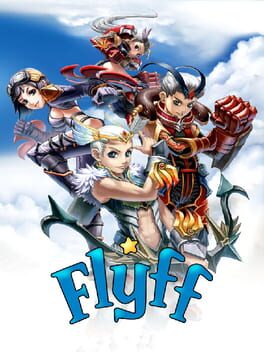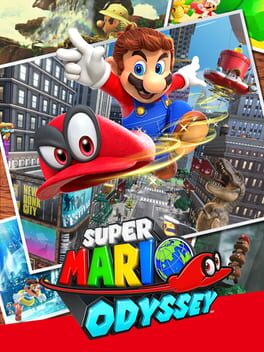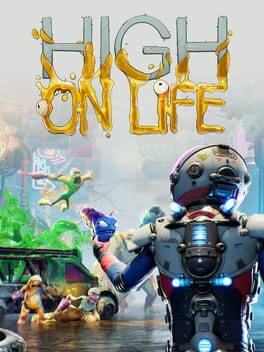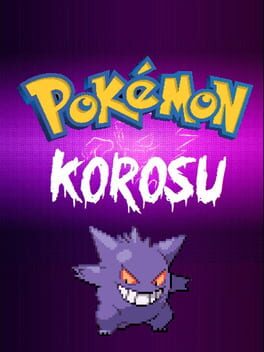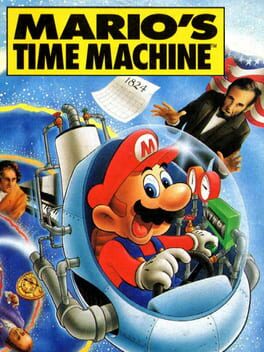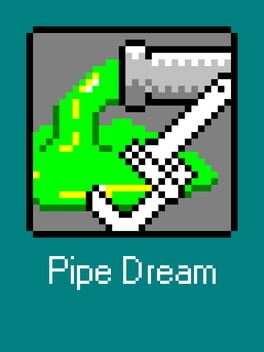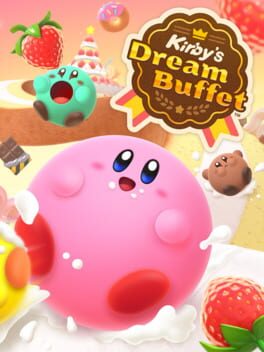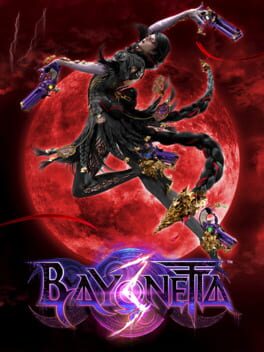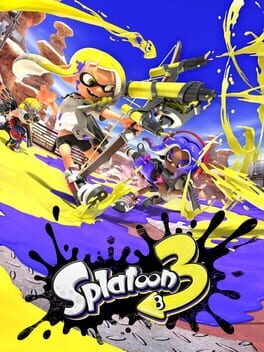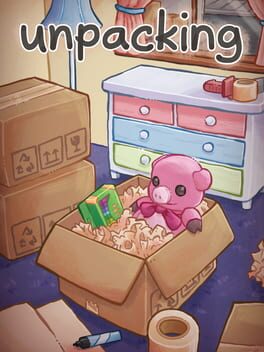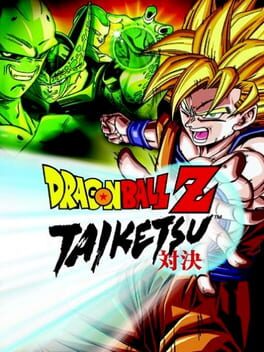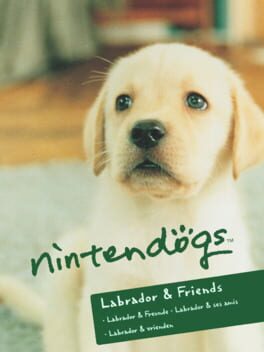Ricecreammm
148 Reviews liked by Ricecreammm
Flyff
2005
Super Mario Odyssey
2017
High on Life
2022
Pokémon Korosu
2016
Persona 5 Royal
2019
I hate that I don't like this game. I wish I did. For the first thirty or so hours, I did. But then I finished it, and I thought about it, and I realized that I don't like Persona 5. Some things here are excellent, and some things here are atrocious, and they all blend together into something that's only ever able to peak at the heights of "okay".
The writing is my biggest problem, with the way the game handles its characters being the strongest flaw. The trauma these people face is treated as a punchline at their expense far too often. It's not an uncommon opinion that Ann gets it the worst of the lot; she's a survivor of sexual assault at the hands of a powerful teacher, and the game constantly takes time out to make her own party members leer at her and make her uncomfortable. Yusuke's "nude model" scene is talked about a lot, but it really isn't that bad, especially compared to later instances — one scene forces her and every other woman in the party into swimsuits to seduce a keycard out of some old rich lecher, and it's played as a joke until the guy grabs Ann, threatens her, and then turns into a big shadow monster who you kill and take the keycard from regardless, making the whole seduction plan pointless. Ryuji and Joker will try to stare up her skirt when she lays down on a couch, gawk at her thighs when she gets caught in the rain, and peer down her top when she's fanning herself in the desert. Ryuji may just be a dumbass who Ann can easily rebuke, but Joker is the leader of the group, and unquestionably holds power over her and the other Phantom Thieves. He doesn't treat any of the other characters this way, and he keeps doing it in cutscenes that you have no control over. Regardless of how the player treats Ann, your character won't stop creeping on her as soon as you give up control. It's weird. It's really fucking weird. Speaking of Ryuji, it's just as tasteless to have a character who was physically abused by that same teacher to the point of broken bones and ostracization be the butt of so many jokes where the punchline is him getting the shit kicked out of him. He's rewarded for both getting the track team back together in his confidant route and for saving every single member of the Phantom Thieves from a sinking ship with the exact same thing: the people he's going out of his way to protect punching him senseless until he's left in a crumpled, bruised, moaning heap on the ground. Ha ha. It's also implied in a scene that comes completely out of nowhere that he gets molested by two gay men in Shinjuku. All of this is played for laughs. It should be obvious to anyone reading this or playing the game for themselves that none of this is funny. It's fucking horrific. It's made worse that someone (or several someones) on the ATLUS writing team think that any of this is funny. I've heard that the localization team begged to be allowed to make script changes to address these issues, and were refused; whether or not this is true, the script that's here is the one that we've got, and the few changes made don't fix these core problems with the writing.
I'm still kind of confused to see all of the "I hate JRPGs!" crowd (your Dunkeys, your Yahtzee Croshaws) circle the wagons around this game and talk about how Persona 5 broke the mold. Mechanically, it's Pokemon. There's nothing wrong with Pokemon. Pokemon can be fun. But the core combat loop is "fish for the enemy's weakness, use the element that they're weak to, win the encounter". It's every single-player Pokemon game. Sometimes, if the fight goes long enough, you can cast a debuff, or maybe even a party-wide buff if you're really feeling brave. Bosses and mini-bosses are completely immune to status effects like shock or sleep, so any foe that you can't kill on the first turn of combat boils down to a DPS race where you either have enough damage and healing to outlast them, or you don't. This is in stark contrast to other entries in the Shin Megami Tensei series where bosses can have mechanically interesting gimmicks or one-off skillsets with unholy good synergies, rather than just being walls of health and damage; the closest thing you get to a boss that challenges your conception of the mechanics in Persona 5 are Okumura and his waves of robots that need to be killed within one turn of each other, which are in a fight so ridiculously easy to brute force by just having enough AOE damage that it barely even qualifies as a challenge. Futaba's later support skills make the game completely trivial, with her Ultimate Support constantly being cast to full heal, buff, and revive every member of the party. I tried to kill myself on a boss by enabling rush mode and walking away, and it still took six and a half minutes before Joker actually went down and I got kicked to the death screen. The guns — while certainly a unique addition — are borderline useless in most encounters, serving only as a middling damage dump (or as a status applier, which only works on trash enemies that are more easily killed by hitting their weak element anyway) and are utterly outclassed by Persona elemental skills. Many Personas can even deal Gun-type damage, giving you almost no reason to ever use the actual guns.
I've seen it said that this game hates women. My gut instinct thinks that's an exaggeration, but it's unquestionable that the writing handles them like shit. Every female confidant in this game leads as smoothly as a car crash into a sexual relationship, with four (!!!) of them being adults pursuing our underage protagonist. There's not a single woman in this game that you can just be friends with without needing to turn down their advances or dodge making your own, first. The men, conversely, do not have this problem, as the only gay men in this game are the sexual predators who assault Ryuji. Lala Escargot, the owner of the Crossroads bar, is the only character who is both a) not a walking punchline and b) queer. The game never actually confirms if she's a drag queen or if she's transgender, but she's at the very least gender non-conforming. That's it. Nobody else. I realize that this may come off as me pounding my fists on the table and demanding token representation, but the way that the female confidants are treated is already token. Every single woman in Joker's life desires him sexually, because this is a shounen harem game masquerading as a serious adult thriller that explores serious adult themes. It's juvenile. The game likes to talk big about rebellion and putting down the system, man, but it's remarkably intolerant of anyone whose inclusion in any mainstream anime would attract death threats for being "too woke". The writing in Persona 5 doesn't put down the system, it is the system. It should not come as a surprise that a series that's based the past three games around the trappings of Jungian psychology is this achingly stupid when it comes to how it handles social issues.
It is endlessly frustrating that ATLUS has accrued as much money and prestige as they have — Joker got into fucking Smash Bros. — and this is still the best that they can do with all of it. Outright bad writing and middling RPG mechanics that feel like they've hardly evolved since 2006. What's left? The UI and the music? Both are great, but there's not a chance they can carry a game that insists on being this long. What missed potential. It's a shame I waited this long to get a chance to play it. I wish I hadn't bothered.
The writing is my biggest problem, with the way the game handles its characters being the strongest flaw. The trauma these people face is treated as a punchline at their expense far too often. It's not an uncommon opinion that Ann gets it the worst of the lot; she's a survivor of sexual assault at the hands of a powerful teacher, and the game constantly takes time out to make her own party members leer at her and make her uncomfortable. Yusuke's "nude model" scene is talked about a lot, but it really isn't that bad, especially compared to later instances — one scene forces her and every other woman in the party into swimsuits to seduce a keycard out of some old rich lecher, and it's played as a joke until the guy grabs Ann, threatens her, and then turns into a big shadow monster who you kill and take the keycard from regardless, making the whole seduction plan pointless. Ryuji and Joker will try to stare up her skirt when she lays down on a couch, gawk at her thighs when she gets caught in the rain, and peer down her top when she's fanning herself in the desert. Ryuji may just be a dumbass who Ann can easily rebuke, but Joker is the leader of the group, and unquestionably holds power over her and the other Phantom Thieves. He doesn't treat any of the other characters this way, and he keeps doing it in cutscenes that you have no control over. Regardless of how the player treats Ann, your character won't stop creeping on her as soon as you give up control. It's weird. It's really fucking weird. Speaking of Ryuji, it's just as tasteless to have a character who was physically abused by that same teacher to the point of broken bones and ostracization be the butt of so many jokes where the punchline is him getting the shit kicked out of him. He's rewarded for both getting the track team back together in his confidant route and for saving every single member of the Phantom Thieves from a sinking ship with the exact same thing: the people he's going out of his way to protect punching him senseless until he's left in a crumpled, bruised, moaning heap on the ground. Ha ha. It's also implied in a scene that comes completely out of nowhere that he gets molested by two gay men in Shinjuku. All of this is played for laughs. It should be obvious to anyone reading this or playing the game for themselves that none of this is funny. It's fucking horrific. It's made worse that someone (or several someones) on the ATLUS writing team think that any of this is funny. I've heard that the localization team begged to be allowed to make script changes to address these issues, and were refused; whether or not this is true, the script that's here is the one that we've got, and the few changes made don't fix these core problems with the writing.
I'm still kind of confused to see all of the "I hate JRPGs!" crowd (your Dunkeys, your Yahtzee Croshaws) circle the wagons around this game and talk about how Persona 5 broke the mold. Mechanically, it's Pokemon. There's nothing wrong with Pokemon. Pokemon can be fun. But the core combat loop is "fish for the enemy's weakness, use the element that they're weak to, win the encounter". It's every single-player Pokemon game. Sometimes, if the fight goes long enough, you can cast a debuff, or maybe even a party-wide buff if you're really feeling brave. Bosses and mini-bosses are completely immune to status effects like shock or sleep, so any foe that you can't kill on the first turn of combat boils down to a DPS race where you either have enough damage and healing to outlast them, or you don't. This is in stark contrast to other entries in the Shin Megami Tensei series where bosses can have mechanically interesting gimmicks or one-off skillsets with unholy good synergies, rather than just being walls of health and damage; the closest thing you get to a boss that challenges your conception of the mechanics in Persona 5 are Okumura and his waves of robots that need to be killed within one turn of each other, which are in a fight so ridiculously easy to brute force by just having enough AOE damage that it barely even qualifies as a challenge. Futaba's later support skills make the game completely trivial, with her Ultimate Support constantly being cast to full heal, buff, and revive every member of the party. I tried to kill myself on a boss by enabling rush mode and walking away, and it still took six and a half minutes before Joker actually went down and I got kicked to the death screen. The guns — while certainly a unique addition — are borderline useless in most encounters, serving only as a middling damage dump (or as a status applier, which only works on trash enemies that are more easily killed by hitting their weak element anyway) and are utterly outclassed by Persona elemental skills. Many Personas can even deal Gun-type damage, giving you almost no reason to ever use the actual guns.
I've seen it said that this game hates women. My gut instinct thinks that's an exaggeration, but it's unquestionable that the writing handles them like shit. Every female confidant in this game leads as smoothly as a car crash into a sexual relationship, with four (!!!) of them being adults pursuing our underage protagonist. There's not a single woman in this game that you can just be friends with without needing to turn down their advances or dodge making your own, first. The men, conversely, do not have this problem, as the only gay men in this game are the sexual predators who assault Ryuji. Lala Escargot, the owner of the Crossroads bar, is the only character who is both a) not a walking punchline and b) queer. The game never actually confirms if she's a drag queen or if she's transgender, but she's at the very least gender non-conforming. That's it. Nobody else. I realize that this may come off as me pounding my fists on the table and demanding token representation, but the way that the female confidants are treated is already token. Every single woman in Joker's life desires him sexually, because this is a shounen harem game masquerading as a serious adult thriller that explores serious adult themes. It's juvenile. The game likes to talk big about rebellion and putting down the system, man, but it's remarkably intolerant of anyone whose inclusion in any mainstream anime would attract death threats for being "too woke". The writing in Persona 5 doesn't put down the system, it is the system. It should not come as a surprise that a series that's based the past three games around the trappings of Jungian psychology is this achingly stupid when it comes to how it handles social issues.
It is endlessly frustrating that ATLUS has accrued as much money and prestige as they have — Joker got into fucking Smash Bros. — and this is still the best that they can do with all of it. Outright bad writing and middling RPG mechanics that feel like they've hardly evolved since 2006. What's left? The UI and the music? Both are great, but there's not a chance they can carry a game that insists on being this long. What missed potential. It's a shame I waited this long to get a chance to play it. I wish I hadn't bothered.
Mario's Time Machine
1993
Pipe Dream
1989
Kirby's Dream Buffet
2022
Bayonetta 3
2022
A game that desperately wants to evoke Spider-Man: No Way Home but more readily brings to mind Spider-Man 2 - specifically, the moment where the community comes together to protect the identity and reputation of a hero in the aftermath of an excessive strain beyond their means. A testament to the character of Bayonetta is what’s singularly heartening about this: in your thirties it’s rare that all your friends will participate in a simultaneous video game zeitgiest, and only a character with her generational gravity can bring us all together at once, once more, to wilfully overlook myriad flaws with presentation, performance, coherence and competence, united in our defence of something that so so often does not deserve the slightest of kind words. A game that no one - not even the developers - expected to exist; a game that generates such powerful gratitude to the gods of gaming that we can all overlook a bereft of almost everything that made the original a bulletproof classic, appreciating instead the offering made in lieu to us, a fucked up little frankenstinian Marvel vs Capcom 2 equivalent in the CAG set, incoherent character action that’s so broken by virtue of its gilded broken pieces that you can’t help but be glad they were able to stitch together something, anything at all, from bloated shit-pressed platinum non-fungible giblets found floating in the latrines behind the headquarters of Microsoft and Square Enix. I didn’t start enjoying this until it was over forever.
Splatoon 3
2022
This review contains spoilers
I am a staunch believer that when it comes to these first-party Nintendo installments, and especially for a series as cautiously iterative as Splatoon, there should only ever be one per console generation.
One needs to look no further than the head-spinning deluge that Mario Party in the GCN/Wii era represented to peer into the alternative. This was a time when work on that series was always ongoing, and each release represented more of a "volume" of minigames than they did an individual landmark innovation, but more importantly, it was a time in Nintendo hardware when getting these updates into consumer's hands necessitated a new physical print. These days though? Not so much. At a time when Mario Kart 8 Deluxe updates are reaching all around the world and the game has doubled in size, I can't help but find myself comparing the two strategies and wondering to myself why I just paid another $80 to play Flounder Heights and Mahi Mahi Resort under a whole new numbered entry instead of simply enjoying them as additions to an existing and cared-for foundation.
Now before I proceed any further, it's worth examining what got us up to this point.
Splatoon 2's multiplayer infrastructure used a system called NEX, a technology whose origins go back nearly 20 years and include functions for Windows 98. Since then, Nintendo has finally overhauled this with a new solution: NPLN. This, to me, seems to be the true reason for the jump from 2 to 3; Retrofitting the old game simply wasn't feasible. While I don't think that's an explanation players should be asked to swallow, it is inarguable that the results have shown their merit. Splatoon 3's multiplayer is the best the series has seen. I am shocked to say that the lobby system in that game is something I look forward to using, rather than something I would always have to enjoy my way around in former entries. In this goal, Splatoon 3 has justified itself with flying yellow/blue colors.
What remains unanswered to me, however, is why larger gameplay additions couldn't have been heralded along with this. Throughout the marketing blitz leading up to the game's release, I kept waiting for that "something" that'd jump out at me to make the game feel "new". At the Splatoon 3 Direct, I thought that I finally saw that answer: The Squid Surge and the Squid Roll. Splatoon as a series has always defined itself by its movement, and on paper these felt like they could be significant additions that meaningfully shook things up. In practice though? I rarely find myself using them. They might make a difference in some tight situations but my experience does not feel shifted in any way by their presence. So, okay, If they don't want to touch the movement too much, maybe they can touch the rules. Are there any new gamemodes? Nope. Turf War is still the only casual option, every Ranked mode is a returning one, and Salmon Run is still their only side-mode. All of this was in Splatoon 2! And all they have to show for it is a card game that I still refuse to touch.
And yet for as bitter as all of this sounds, would you believe me if I said this is the part of the game I actually found myself enjoying the most?
That's right, it's time to get into Hero Mode.
The history of Splatoon singleplayer campaigns started off with a bang. If you were around in the 2015 Nintendosphere, it seemed unanimous that the original game's campaign was gloriously-designed, especially when it came to the final boss. Still, it didn't take long for this shining star to lose its lustre. By 2017, with the release of the second game, discussion felt just as unanimous that the level design felt uninspired, repetitive, and forgettable. Even the final boss, which was once a crown jewel, was regarded as a snoozer. So imagine everyone's surprise when a year later, the Octo Expansion came along and blew the world away. Here was a campaign with playable Octolings, really punchy writing, and a freer mission structure than ever before! This is the narrative that has metastasized into canon about the series, but I'm here to tell you the secret nobody else will: All of these campaigns are about the same. Not that they're bad, or even average, but that the quality has pretty much always been around a 7 or an 8 and not really wavered as dramatically as folks might have you believe. Yet, in my eyes, Return of the Mammalians commits the one sin that every past Hero Mode made sure to avoid: It lost the sense of surprise. There are only two new assets across the entire campaign: Ink Wheels and Soaker Blocks. Every single other asset is reused. Some stages might introduce a new objective, like an especially-cheeky volleyball challenge which I enjoyed, but on the whole even the majority of these are rehashed from Octo Expansion. The way in which the entire game's ending subverts its own structure in the exact beat-for-beat nature that Octo Expansion does, however, is perhaps RotM's greatest insult. Not even this could stay sacred for long.
The story, I'm afraid, is an even grander disappointment.
The Splatoon series has a terribly-kept secret: It is post-apocalyptic. The world of the Inklings and Octolings takes place 10,000 years after climate change and war destroyed humanity. Up until this point, this information only ever communicated through optional collectibles and secrets, but never something to be directly confronted as the subject of the story, until now. The world of Alterna has the squids interacting with the ruins of humanity in a more direct manner than ever before. Unfortunately, while each island is reasonably thematically compelling, it never seems to be what anybody wants to talk about. Instead, the squids are concerned with "finding Gramps" or fighting over treasure, the typical Saturday-morning fare these story modes usually entail. It feels like the game is desperate to reach for something loftier than it ever has, but nobody in the story is allowed to regard it that way. Only at the very end of the story does a mammal return, and it is the most embarrassing sequence the series has ever seen. It took three games of buildup to get to this point and it fizzles out so spectacularly it leaves me completely scratching my head as to what the series could possibly have left to explore at this point. This was their one chance to do something a little more special than usual and they completely dropped the ball. With the promise of a fifth campaign on the way in the form of another expansion pass in the future, we'll see where things are a year from now, but the suggestion that it'll be centered around Pearl and Marina AGAIN does not inspire confidence that this is an issue that they'll fix.
Conclusion
Coming into Splatoon 3, I was expecting two things: To be underwhelmed by the multiplayer, and impressed by the singleplayer. As it turns out, what I got was the complete opposite, and yet all the same still not enough.
All around me my friends talk about this game as though it seems to have followed through and delivered on its promises in exactly the way I had been unsure of all this time, yet despite the fact that I bought Splatoon 2 physically and Splatoon 3 digitally, (meaning it should be easier for me to fire this up and spend more time with it with more ease than ever before) I find nothing compelling me to spend a significant amount of time with this game now that I've taken a cursory stroll around everything it has to offer. We'll see how I feel in another two years when this game receives more updates but if it's anything like Splatoon 2's update cycle I feel like these are already pretty much my final thoughts.
TL;DR: The best Splatoon game yet, but as the series matures, 'the best' iteration of a 2015 formula still isn't enough in 2022.
One needs to look no further than the head-spinning deluge that Mario Party in the GCN/Wii era represented to peer into the alternative. This was a time when work on that series was always ongoing, and each release represented more of a "volume" of minigames than they did an individual landmark innovation, but more importantly, it was a time in Nintendo hardware when getting these updates into consumer's hands necessitated a new physical print. These days though? Not so much. At a time when Mario Kart 8 Deluxe updates are reaching all around the world and the game has doubled in size, I can't help but find myself comparing the two strategies and wondering to myself why I just paid another $80 to play Flounder Heights and Mahi Mahi Resort under a whole new numbered entry instead of simply enjoying them as additions to an existing and cared-for foundation.
Now before I proceed any further, it's worth examining what got us up to this point.
Splatoon 2's multiplayer infrastructure used a system called NEX, a technology whose origins go back nearly 20 years and include functions for Windows 98. Since then, Nintendo has finally overhauled this with a new solution: NPLN. This, to me, seems to be the true reason for the jump from 2 to 3; Retrofitting the old game simply wasn't feasible. While I don't think that's an explanation players should be asked to swallow, it is inarguable that the results have shown their merit. Splatoon 3's multiplayer is the best the series has seen. I am shocked to say that the lobby system in that game is something I look forward to using, rather than something I would always have to enjoy my way around in former entries. In this goal, Splatoon 3 has justified itself with flying yellow/blue colors.
What remains unanswered to me, however, is why larger gameplay additions couldn't have been heralded along with this. Throughout the marketing blitz leading up to the game's release, I kept waiting for that "something" that'd jump out at me to make the game feel "new". At the Splatoon 3 Direct, I thought that I finally saw that answer: The Squid Surge and the Squid Roll. Splatoon as a series has always defined itself by its movement, and on paper these felt like they could be significant additions that meaningfully shook things up. In practice though? I rarely find myself using them. They might make a difference in some tight situations but my experience does not feel shifted in any way by their presence. So, okay, If they don't want to touch the movement too much, maybe they can touch the rules. Are there any new gamemodes? Nope. Turf War is still the only casual option, every Ranked mode is a returning one, and Salmon Run is still their only side-mode. All of this was in Splatoon 2! And all they have to show for it is a card game that I still refuse to touch.
And yet for as bitter as all of this sounds, would you believe me if I said this is the part of the game I actually found myself enjoying the most?
That's right, it's time to get into Hero Mode.
The history of Splatoon singleplayer campaigns started off with a bang. If you were around in the 2015 Nintendosphere, it seemed unanimous that the original game's campaign was gloriously-designed, especially when it came to the final boss. Still, it didn't take long for this shining star to lose its lustre. By 2017, with the release of the second game, discussion felt just as unanimous that the level design felt uninspired, repetitive, and forgettable. Even the final boss, which was once a crown jewel, was regarded as a snoozer. So imagine everyone's surprise when a year later, the Octo Expansion came along and blew the world away. Here was a campaign with playable Octolings, really punchy writing, and a freer mission structure than ever before! This is the narrative that has metastasized into canon about the series, but I'm here to tell you the secret nobody else will: All of these campaigns are about the same. Not that they're bad, or even average, but that the quality has pretty much always been around a 7 or an 8 and not really wavered as dramatically as folks might have you believe. Yet, in my eyes, Return of the Mammalians commits the one sin that every past Hero Mode made sure to avoid: It lost the sense of surprise. There are only two new assets across the entire campaign: Ink Wheels and Soaker Blocks. Every single other asset is reused. Some stages might introduce a new objective, like an especially-cheeky volleyball challenge which I enjoyed, but on the whole even the majority of these are rehashed from Octo Expansion. The way in which the entire game's ending subverts its own structure in the exact beat-for-beat nature that Octo Expansion does, however, is perhaps RotM's greatest insult. Not even this could stay sacred for long.
The story, I'm afraid, is an even grander disappointment.
The Splatoon series has a terribly-kept secret: It is post-apocalyptic. The world of the Inklings and Octolings takes place 10,000 years after climate change and war destroyed humanity. Up until this point, this information only ever communicated through optional collectibles and secrets, but never something to be directly confronted as the subject of the story, until now. The world of Alterna has the squids interacting with the ruins of humanity in a more direct manner than ever before. Unfortunately, while each island is reasonably thematically compelling, it never seems to be what anybody wants to talk about. Instead, the squids are concerned with "finding Gramps" or fighting over treasure, the typical Saturday-morning fare these story modes usually entail. It feels like the game is desperate to reach for something loftier than it ever has, but nobody in the story is allowed to regard it that way. Only at the very end of the story does a mammal return, and it is the most embarrassing sequence the series has ever seen. It took three games of buildup to get to this point and it fizzles out so spectacularly it leaves me completely scratching my head as to what the series could possibly have left to explore at this point. This was their one chance to do something a little more special than usual and they completely dropped the ball. With the promise of a fifth campaign on the way in the form of another expansion pass in the future, we'll see where things are a year from now, but the suggestion that it'll be centered around Pearl and Marina AGAIN does not inspire confidence that this is an issue that they'll fix.
Conclusion
Coming into Splatoon 3, I was expecting two things: To be underwhelmed by the multiplayer, and impressed by the singleplayer. As it turns out, what I got was the complete opposite, and yet all the same still not enough.
All around me my friends talk about this game as though it seems to have followed through and delivered on its promises in exactly the way I had been unsure of all this time, yet despite the fact that I bought Splatoon 2 physically and Splatoon 3 digitally, (meaning it should be easier for me to fire this up and spend more time with it with more ease than ever before) I find nothing compelling me to spend a significant amount of time with this game now that I've taken a cursory stroll around everything it has to offer. We'll see how I feel in another two years when this game receives more updates but if it's anything like Splatoon 2's update cycle I feel like these are already pretty much my final thoughts.
TL;DR: The best Splatoon game yet, but as the series matures, 'the best' iteration of a 2015 formula still isn't enough in 2022.
Bayonetta 3
2022
I'm incredibly torn on where I stand with this game. On one hand the game is incredibly fun to play, in general being a significant step up from how dull 2 was, and has a ton of incredibly wacky and creative weapons to use. (My personal favorites being Dead End Express and Abracadabra) On the other hand this also has one of the worst stories I've ever seen in an action game, with a really terrible forced romance and an ending that feels like it really wants to be DMC5 but fails at putting in any real effort to make it work. I really strongly disagree with the notion of stories not mattering in action games, and this one's was horrendous to the point of essentially dooming the franchise for me moving forward.
Unpacking
2021
The bandwagon of games being made with the express purpose of calling themselves “wholesome” is torpedoing forward at mind-melting speeds and only continues to gain traction. By now, whatever authentic sentiment that used to drive this movement has since been appropriated into a manufactured “aesthetic” to serve anyone who wants a GIF of their game to blow up on Twitter. What this means for me is that I nearly passed up on an immaculate game because of my growing cynicism and jadedness. Make no mistake about it; Unpacking truly is the superbly unique game everyone is making it out to be.
Anyone else can tell you about the inspired marriage of puzzle game and narrative – an unprecedented twist on “environmental storytelling,” one of the humble video gamist’s favorite phrases to wield – but what struck me equally about Unpacking was its unconventional story structure. To leave things intentionally vague, it feels like the game ends about three separate times. This is because the game follows a clear narrative arc where things get worse, and then they get better. Normally stories end right there, when things get better. We’ve had our hero’s journey, let’s wrap it up; but Unpacking keeps going. The story pushes on to explore just how much better things can continue to become. “Better” isn’t something that just happens once, it’s a continued lifetime of joy and love that rolls onward and forward, and then onward and forward still. What would ordinarily be a footnote or epilogue in other stories is the crux of Unpacking’s heart: why not allow me to play through my own epilogue? If I go on to live “happily ever after,” why not allow me to actually live through that “happily ever after?” Why must stories always stop there? Critically, this “happily ever after” in Unpacking winds up being significantly longer than any of the tribulations that had to be overcome to reach it. Nothing bad lasts forever. There’s a light at the end of the tunnel, but the point is not to simply reach that light; it’s to bask in it, revel in it, sink into its comfort and its warmth and hold on to its embrace for as long as it can last.
Things get better, yes – but they can also keep getting better, too.
Anyone else can tell you about the inspired marriage of puzzle game and narrative – an unprecedented twist on “environmental storytelling,” one of the humble video gamist’s favorite phrases to wield – but what struck me equally about Unpacking was its unconventional story structure. To leave things intentionally vague, it feels like the game ends about three separate times. This is because the game follows a clear narrative arc where things get worse, and then they get better. Normally stories end right there, when things get better. We’ve had our hero’s journey, let’s wrap it up; but Unpacking keeps going. The story pushes on to explore just how much better things can continue to become. “Better” isn’t something that just happens once, it’s a continued lifetime of joy and love that rolls onward and forward, and then onward and forward still. What would ordinarily be a footnote or epilogue in other stories is the crux of Unpacking’s heart: why not allow me to play through my own epilogue? If I go on to live “happily ever after,” why not allow me to actually live through that “happily ever after?” Why must stories always stop there? Critically, this “happily ever after” in Unpacking winds up being significantly longer than any of the tribulations that had to be overcome to reach it. Nothing bad lasts forever. There’s a light at the end of the tunnel, but the point is not to simply reach that light; it’s to bask in it, revel in it, sink into its comfort and its warmth and hold on to its embrace for as long as it can last.
Things get better, yes – but they can also keep getting better, too.
NieR: Automata
2017
There was a time in my life when I touted this as one of my top 5 favorite games of all time. My reasoning was this: yeah, the combat kinda sucks, all the characters are totally flat, the character designs are shameless in a way that isn't cool, but the music is incredible and it made me think about some really fascinating stuff. It never really develops on those ideas in the game itself but I like what it makes me think about removed from the playing experience.
Nearly three years later, the effect of this game is wearing off, I've played more games and lived through more experiences, and I'm realizing: oh, that's actually, uh, not that great!
Nearly three years later, the effect of this game is wearing off, I've played more games and lived through more experiences, and I'm realizing: oh, that's actually, uh, not that great!
